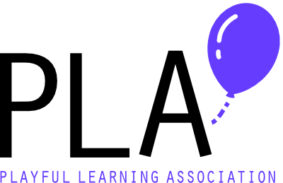Free, free, set them free
Corresponding Author: Frederik Kjær Zeuthen
All authors:
Length: 60 minutes
Location: Gallery Room 1
Description:
#permissiontofail in higher education
We keep telling our students to try and fail and try again, but they don’t seem to believe us – they always want to do it right on their first attempt, every time. Difficult to comprehend, apparently, is the idea that they will never learn anything new as long as they only perform actions at which they are already capable.
The solution: to give them unsolvable tasks!
This session will address the issue of deliberately using chance and randomness in pursuit of a specific learning goal. Building on Caillois’ idea of alea the activities in this session are real life examples of how to (hopefully) overcome the dichotomy of the intrinsic motivation when playing a game vs. the extrinsic motivation of learning stuff I need to pass a test.
Using chance is a way to deliberately liberate the students and support their #permissiontofail. When given an unsolvable task such as ‘use this hammer to make a cup of coffee’ it is not your fault if you fail! The two good things to come from this – learning wise, that is, not a hammer-made cup of coffee – are the need to know your stuff and the freedom to be creative. If you fail in a highly chance influenced activity you were unlucky, but if you succeed you were good! One positive side effect of these activities is that they are student centered in groups or pairs rather than teacher centered, which is a way to make everyone speak, act, and do a lot more.
Participants will experience four different learning activities based on chance. These activities are real life examples from the Danish BA-programme of Social Education (roughly, but not excactly, preschool teacher training), and I will argue that these activities are generic and that the aleatic principles can be applied to any topic. To prove this point I will use dice, quotes in a hat, tarot, and random images as metaphors to teach you all you need to know about chance as a driving force of learning in higher education.
In other words: how can we use chance to help students achieve a sense of permission to fail in an educational world and society which is highly goal oriented with exams and tests and such, so they can have more fun while learning more?
References, web links and other resources:
One of the above mentioned learning activities is described here:
https://issuu.com/sile-kp/docs/playbook_2_uk p24
